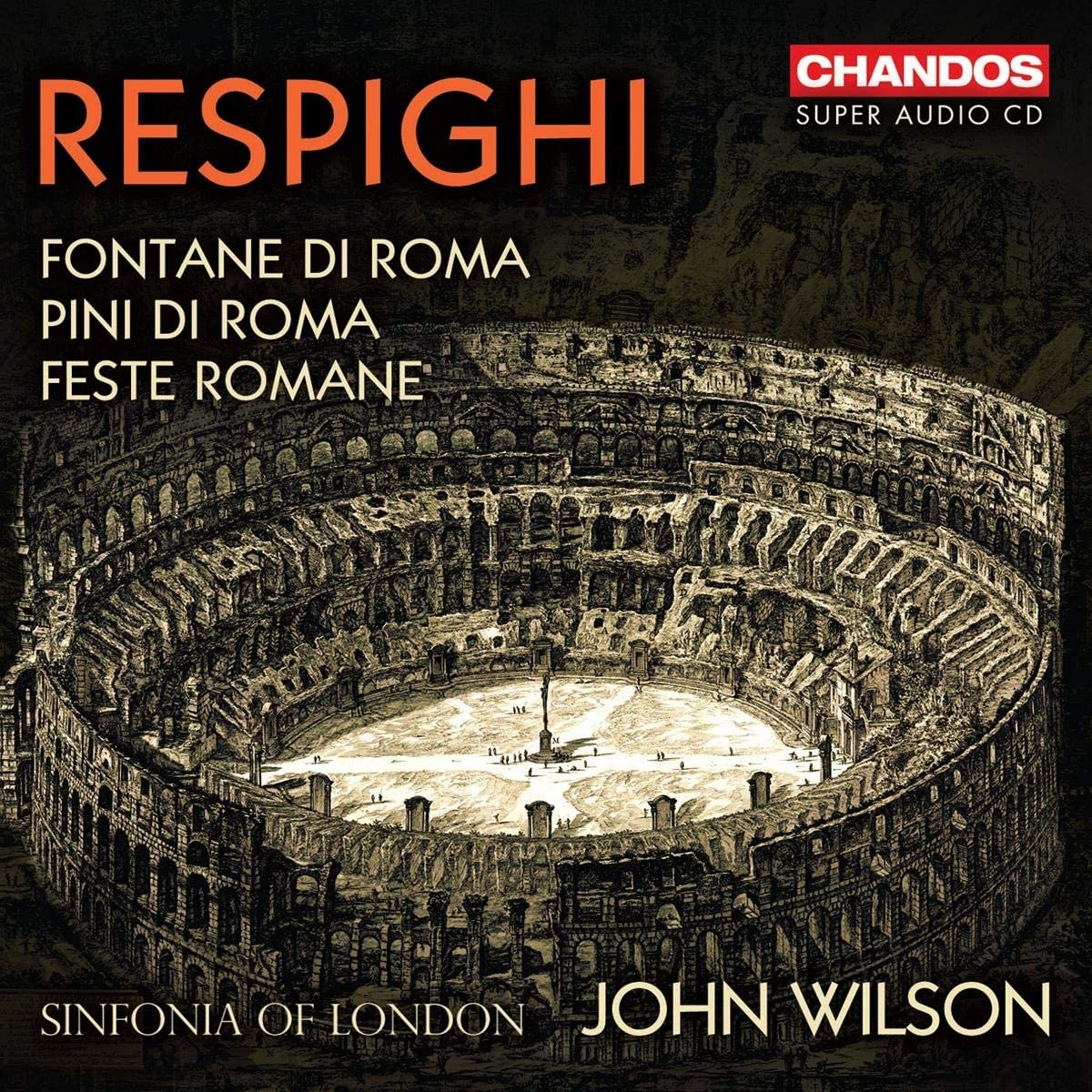RESPIGHI Roman Trilogy (Wilson)
View record and artist detailsRecord and Artist Details
Genre:
Orchestral
Label: Chandos
Magazine Review Date: 10/2020
Media Format: Super Audio CD
Media Runtime: 60
Mastering:
DDD
Catalogue Number: CHSA5261

Tracks:
| Composition | Artist Credit |
|---|---|
| Feste romane, 'Roman Festivals' |
Ottorino Respighi, Composer
John Wilson, Conductor Sinfonia of London |
| Fontane di Roma, 'Fountains of Rome' |
Ottorino Respighi, Composer
John Wilson, Conductor Sinfonia of London |
| Pini di Roma, 'Pines of Rome' |
Ottorino Respighi, Composer
John Wilson, Conductor Sinfonia of London |
Author: Tim Ashley
John Wilson and his Sinfonia of London have opted for Respighi’s Roman Trilogy for their third album and, as we have come to expect from these forces, the results are nothing if not gripping. This is a high-voltage interpretation, virtuosically played and strong on detail and drama, in which Wilson digs deep into the complexities both of Respighi’s at times eclectic imagination and his extraordinary powers of orchestration.
Feste Romane, placed first and arguably the disc’s high point, sounds more overtly modernist and dissonant than it sometimes does, bringing us up sharp in the ‘Circenses’ opening section, where Wilson unleashes such a cataclysm that the ricocheting brass fanfares, excruciating harmonies and high decibel count all leave you feeling vaguely pulverised. Respighi’s well-known debt to Stravinsky is very much apparent in both the Noces-like bells that greet the arriving pilgrims in ‘Il giubileo’ and the garish thematic juxtapositions of the final ‘La Befana’, which takes the Shrovetide music from Petrushka as its model. The third movement is wonderfully poised, and the central scherzo-cum-waltz has strong echoes of Jeux, before the mandolin serenade brings it to its close.
There’s a comparable sense of excitement elsewhere. Wilson’s way with Respighi’s depiction of the Triton fountain is all clarity and brilliance, and really gives a sense of the play of almost blinding light on water, while the Trevi episode has irresistible momentum and élan. The outer movements of Fontane, however, are a fraction cool, though the playing is consistently lovely, with the high violin harmonics at the start shaded down to the merest hint of sound, and the woodwind solos all beautifully focused and shaped.
The Gianicolo section of Pini has a similar cool beauty, which contrasts perhaps more effectively here with the awe of the Catacombs scene and the almost abrasive energy of the children’s games at the start, where Wilson carefully stresses the Stravinskian dissonances that gave the work’s first audiences such trouble. The final tramp down the Appian Way, meanwhile, builds to another shattering climax that leaves you faintly shell-shocked.
The competition in this repertory is, of course, stiff, not least from Riccardo Muti and the Philadelphia Orchestra (EMI, 11/85) and Antonio Pappano and the Accademia Nazionale di Santa Cecilia (11/07). And for those who prefer a more poetic approach to Respighi, then Karajan’s ravishing Fontane and Pini with the Berlin Philharmonic (11/78 – he never recorded Feste) still have much to recommend them. But Wilson and his orchestra more than hold their own against their rivals, and perhaps just have the edge over them thanks to Chandos’s superbly engineered recording, which is state-of-the-art, and absolutely stunning.
Discover the world's largest classical music catalogue with Presto Music.

Gramophone Digital Club
- Digital Edition
- Digital Archive
- Reviews Database
- Full website access
From £8.75 / month
Subscribe
Gramophone Full Club
- Print Edition
- Digital Edition
- Digital Archive
- Reviews Database
- Full website access
From £11.00 / month
Subscribe
If you are a library, university or other organisation that would be interested in an institutional subscription to Gramophone please click here for further information.




